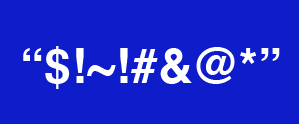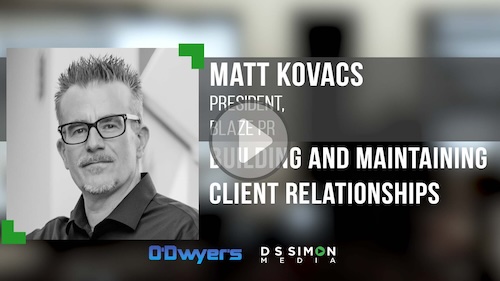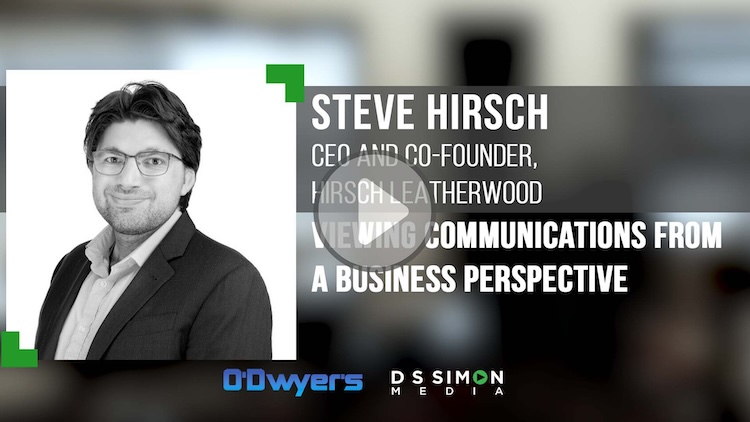Anderson Cooper introduced his 60 Minutes subject as "the pony-tailed assassin, 5-foot-4 and 102 pounds, a Boston native and hometown Marathon favorite."
Shalane Flanagan: Maybe it's just a Bostonian thing, but I was really genuinely just pissed off that someone would ruin such a-- what is such a celebratory day and a historical moment with that kind of action.
Whoa! Did I just hear what I think I heard?
Anderson Cooper: You were angry?
Shalane Flanagan: I was angry. I was really pissed off that someone would do this. It's like it was a personal attack to my city.
 Yup. America’s longest-running and most respected magazine broadcast had declared that if you’re "p.o.'ed," by golly, we'll let the viewers know.
Yup. America’s longest-running and most respected magazine broadcast had declared that if you’re "p.o.'ed," by golly, we'll let the viewers know.
A few days earlier in an NYU public relations class, a student was graded down for using the exact same language in a mock presentation. Said the prudish instructor, "If one listener is alienated by your use of questionable language, then you won’t get the sale."
(Fortunately, the marked-down student didn't see 60 Minutes to demand reconsideration of his grade!)
But it is legitimate to ask, "What should be the standards – in speech and writing – to which public relations professionals are held?"
You don’t need to see the latest tweet from US Airways to recognize that over the past decade, standards throughout society have not only been diminished, they’ve been demolished. Vulgarity and profanity in the culture has become so commonplace that nobody bats an eye when Miley Cyrus twerks or Howard Stern spews or Jay Z tours the White House. In the 21st century, such low-lifes are lauded.
And standards in the broader society have followed suit.
News organizations, like CBS and even The New York Times, have bowed to common use and accepted off -color phrases, like "pissed off" and "that sucks."
- Publishing companies, desperate for a book that makes money, rush out titles like "On Bulls**#," "A**holes, A Theory," and the best-selling children’s book for goddsakes, "Go the F**k to Sleep."
- And even in those bastions of civility and conservatism, corporate C-suites and high government offices, the language has disintegrated. When former State Department spokesman and celebrated Benghazi cover-upper Victoria Nuland was caught saying, "F**k the EU," to a stunned colleague, diplomacy itself became undiplomatic.
So in this world of steadily-descending speech and language standards, why isn’t it perfectly acceptable for public relations professionals to follow suit? After all, the people for whom we work curse and swear and use the most unseemly language in all variety of venues without hesitation. And nobody seems to mind.
So what’s the big deal?
Here’s the answer:
Public relations people are supposed to be "professional communicators," they should set the standard for proper and pertinent communication, whether in speaking or in writing or in communicating on Social Media.
Just as the Associated Press Stylebook – the standard-bearing bible for journalists – continues to hold the line against its members using obscenities in print, so, too, must public relations people be the models for propriety in language, even as most of those around them succumb to the lowest common denominator.
Public relations professionals should stand for something more.
The field of public relations, despite its growth and acceptance as a modern business practice, is still largely misunderstood by most and condemned by many.
High ethics and superior standards aren’t what most people expect from public relations professionals.
So wouldn’t it be something, then, if it were public relations people who led the fight to raise the standards of modern communications discourse?
As a more refined pony-tailed assassin might put it, "That would really get our critics ticked off!"










 Have a comment? Send it to
Have a comment? Send it to 
No comments have been submitted for this story yet.